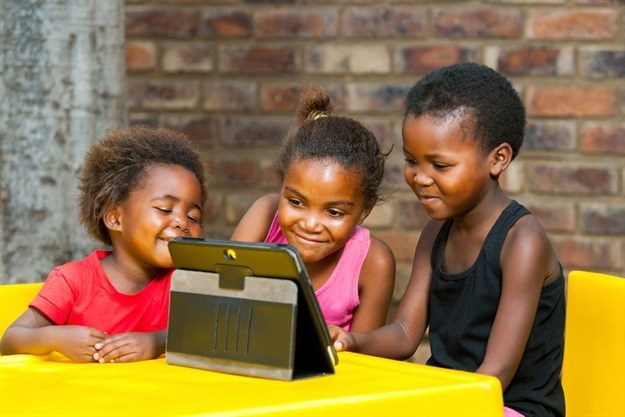






“The intention is that, by the end of next year, every single school must be connected. As we speak, 98% of schools are connected for purposes of administration.”
He acknowledged that many young people use a tablet, an iPhone or an iPad, and so the country has to digitise its learning content. According to him, over 300 textbooks have already been digitised, with over 124 of these in the science and technology fields.
“We cannot teach without integrating Information and communication technology (ICT) into the school curriculum. It has become a core element in terms of the process of learning.
“We cannot say there is a qualitative improvement in the school system unless we are able to assess it. ICT is our opportunity to do this. It allows us to disseminate data banks for tests and assessments and to manage and oversee complex systems. We believe that, soon enough, we will be able to use ICT in such a purposeful and meaningful way that we could change the face of education in South Africa.”
There are currently 147 District Teacher Development Centres (DTDCs) in the country, which provide spaces designed to train teachers on how to integrate ICT into classrooms. These DTDCs are equipped with interactive boards, laptops, desktops, servers, data projectors, routers and printers.
“The view, the dream and the hope are that having passed the 65% mark in terms of the digitalisation of textbooks, by the end of 2018, every single textbook, for every grade in every subject, will be digitised and made available to every single learner,” Surty concluded.
Under the theme, ‘Our vision for South African education’, the event saw numerous students from UJ’s Faculty of Education in attendance, several of whom have had their contributions on the topic published in the Education Conversations’ Occasional Publications Series.
Many posed difficult questions to the panel, which apart from the Deputy Minister, also included founder and executive director of Oratile Early Childhood Development Centre, Abram Kgari and Koketso Nthimbane, an education honours student at UJ.
Further insights into the education sector were provided by UJ Professor, Caroline Long, who spoke about the merits of agency in effective teaching in South Africa.
Radio and TV broadcaster Masechaba Ndlovu, who fielded questions from the audience through social networking site Twitter, facilitated the event.
Education Conversations are organised by the Kagiso Trust, a leading development agency working for freedom from poverty, in partnership with the University of Johannesburg’s Faculty of Education. Its interactive sessions create platforms for key education stakeholders, students and society at large to engage on matters that affect and impact South Africa’s education system, with a view to propose practical solutions to the sector’s challenges. The next Education Conversations event takes place on 5 September 2017. More details can be found on Kagiso Trust’s website.